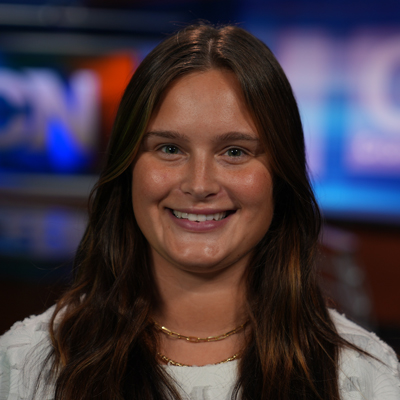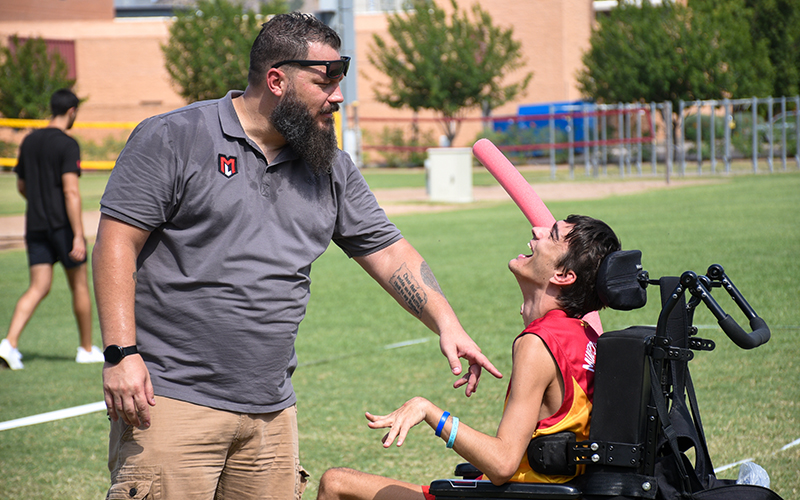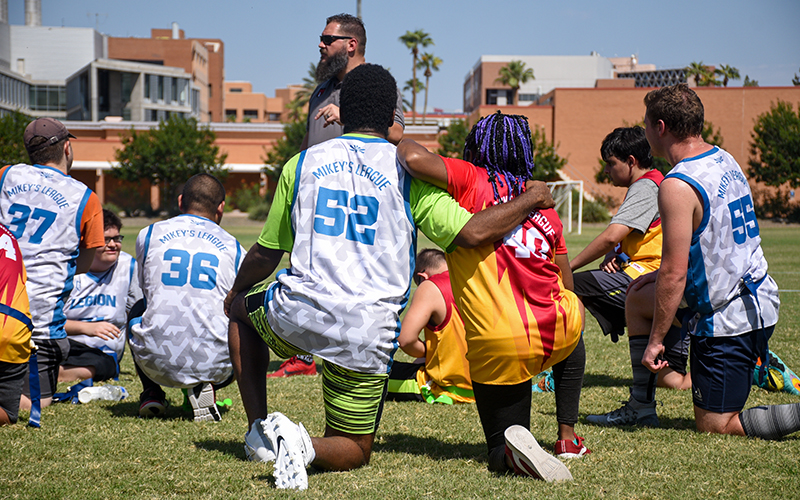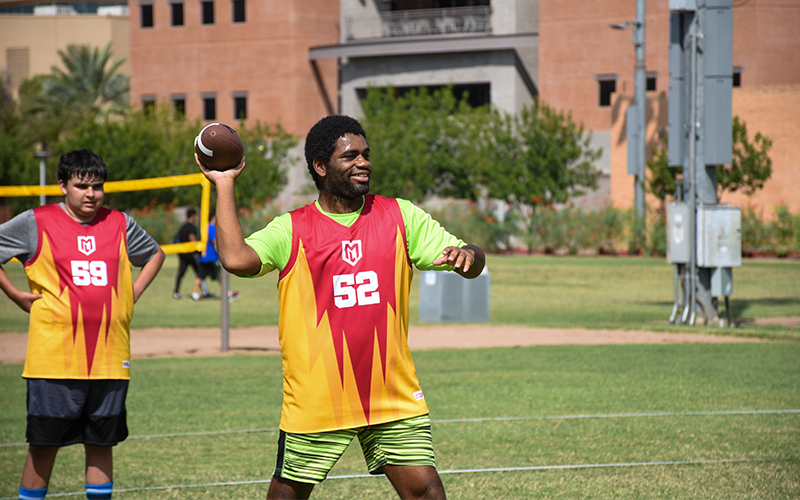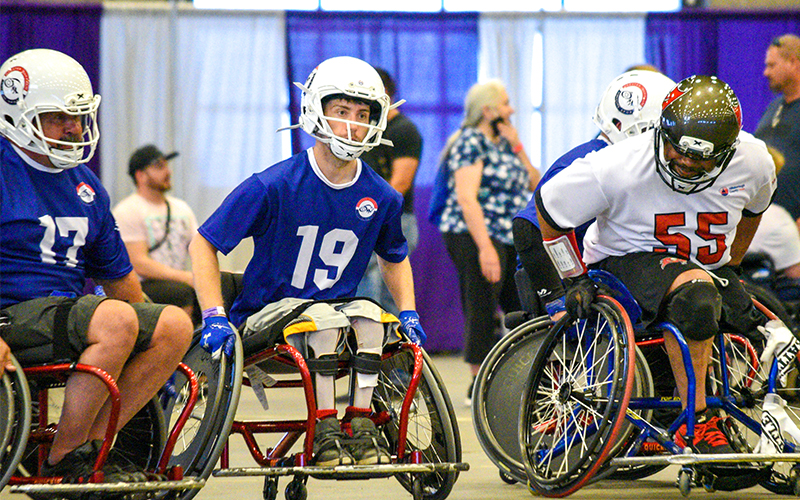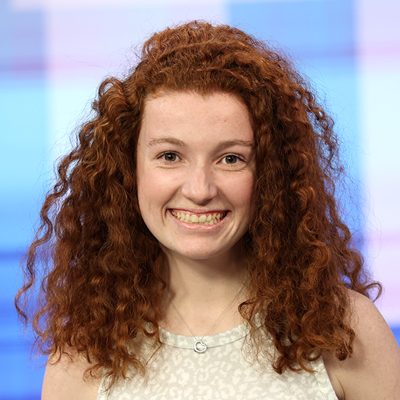PHOENIX – Michael “Mikey” Bender grew up like most children, spending his days playing backyard football with his older brother Karl and neighborhood kids in Connecticut and, later, Mesa.
Despite similar upbringings, Mikey was unlike other kids. Born with cerebral palsy and a backward heart, doctors told the Bender family that they did not expect Mikey to ever walk, let alone live past the age of 3.
Defying more odds than one, Mikey died in 2008 at 21. His legacy set the intention for Mikey’s League.
Through a shared vision of accessibility and inclusivity in sports, childhood friends Karl Bender and Scott Freeman formed Mikey’s League with a powerful objective: to challenge the limits placed on the disabled community and allow them to inspire and teach others.
“We are firm believers in allowing young adults to break through social glass ceilings and become and do whatever,” said Bender, founder and president of Mikey’s League. “We firmly believe in the power of sports, and we strive to give everyone that normalcy others have.”
By expanding Mikey’s backyard football experience into the Valley, Mikey’s League continues to challenge the notion that members of the disabled community need to be treated differently, and in doing so provides opportunities to all ages, genders and ability levels. The organization’s eight-week flag football program, in partnership with ASU Health Services, showcases this unified vision.
Held on Saturday mornings at the intramural fields on ASU’s Tempe campus, the weekly competition is broken into 45 minutes of developing football skills, followed by 45 minutes of game play. Each athlete is supplied with the proper equipment, including an official Mikey’s League reversible jersey, and games are staffed with ASU volunteers who are eager to help each athlete flourish.
For Tyler Jacob, a volunteer and 2020 ASU grad, Mikey’s League hits close to home as he fondly remembers playing basketball with one of his good friends who was disabled. After hearing about Mikey’s League his junior year in college, it was a no-brainer to join.
“You won’t not have a great time and really it’s the kids and the smiles that we can put on their faces and how much fun they have while they’re out here that is unbeatable,” Jacob said. “A lot of these kids don’t play sports year-round and so when we bring them in and we can see and watch their development from week one to week eight, it’s amazing.”
The program teaches the athletes offensive and defensive skills such as man-to-man coverage and, most importantly, social skills. For Queen Creek residents Courtney and Victor Perez, this meant all the difference for their daughter Bella, 17, who was struggling to receive the social normalcy most teenagers are afforded due to her disability.
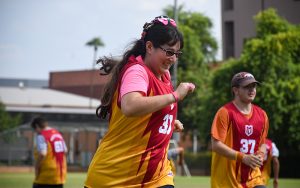
During practices, the coaches and volunteers go over drills with players to help prepare them for games. Among the participants is Kimberly Adams, who runs across the field during a warm-up. (Photo by Mary Grace Grabill/Cronkite News)
“She was not doing well socially at the public school,” Courtney said. “So, when we joined Mikey’s League, she got to meet all of these kids that have been so kind and have shown her that there are nice kids out there. She loves to come just for that.”
Although social development is a part of the core skills taught through Mikey’s League, the main objective is to teach, practice and develop all abilities by holding the athletes to a higher standard. Scott Freeman, Mikey’s League co-founder and executive director, can attest to the importance of this objective through his work in the children’s behavioral health field.
“I have gotten to see a lot of gaps in the system from the inside,” Freeman said. “We don’t break our kids up based on their ability level. We have kids that are lower functioning playing on the same field at the same time as those who are higher functioning. That’s the kind of opportunities we are trying to create.”
With the belief that sports have the power to unify, heal and provide the confidence needed to be successful in life, Mikey’s League is determined to continue growing its program and meeting the needs of the community it serves.
